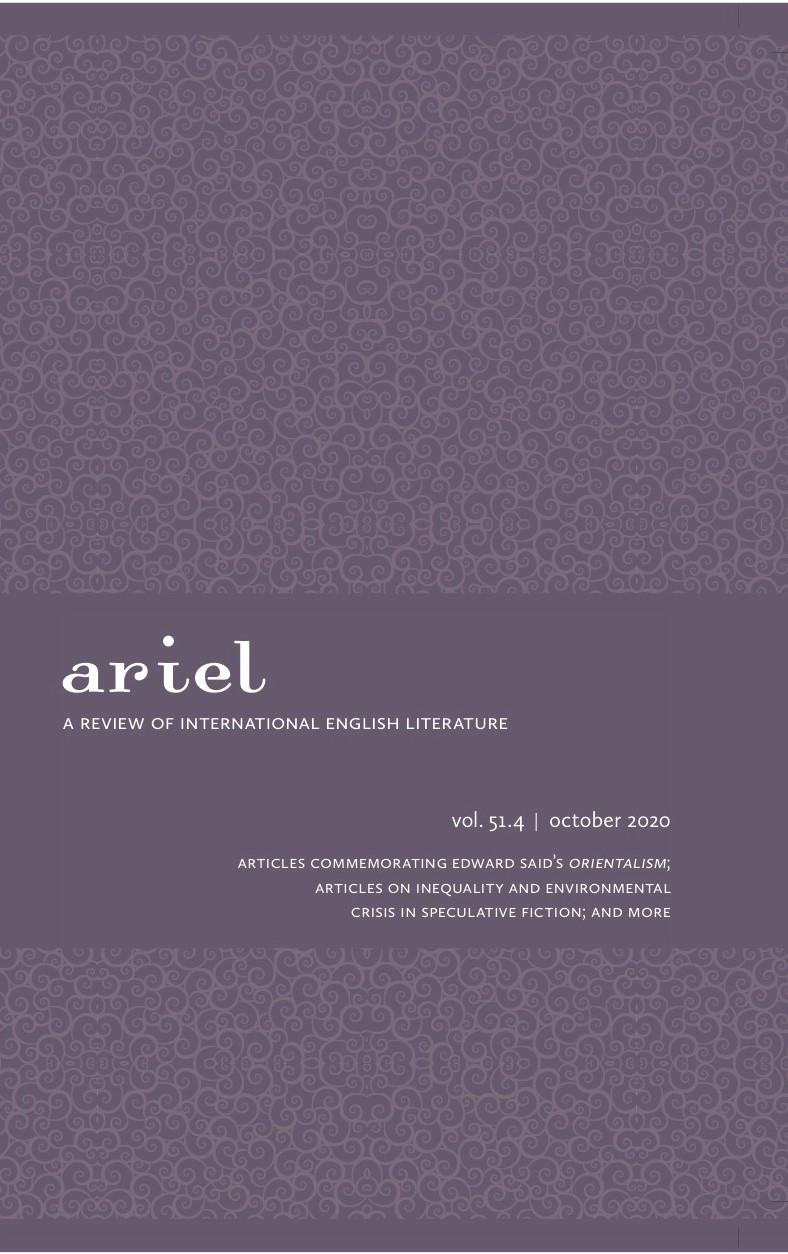Post-apocalyptic Specters and Critical Planetarity in Merlinda Bobis's Locust Girl
Keywords:
Planetarity, Climate change, Post-apocalypse, Postcolonial, Merlinda BobisAbstract
Climate change and global ecological crisis demand the reimagining of humanity on a planetary scale, yet planetary ideals risk downplaying human difference and inequality. This article examines Filipina Australian writer Merlinda Bobis’s novel Locust Girl (2015) in terms of the development of a critical planetarity that prioritizes an ethics of alterity. The novel links the post-apocalypse with spectrality and alternative futures to suggest that, for one, the planet is already a fragmented concept haunted by uneven geographies of empire and capital, and, for another, the imagination of alternative political life needs to recuperate unrealized historical possibilities of the local. Specifically, the novel draws on the trope of nonhuman metamorphosis to depict its female protagonist whose nomadic subjectivity unsettles anthropocentric worldviews. Bobis’s novel makes a case for placing the ethnic minority writer’s response to the Anthropocene at the center of a situated practice of planetarity.


